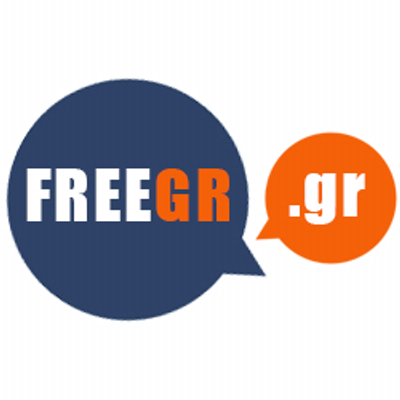Το Τμήμα Ηλεκτρολόγων Μηχανικών και Μηχανικών Υπολογιστών του Δημοκριτείου Πανεπιστημίου Θράκης και το Ινστιτούτο Νανοεπιστήμης και Νανοτεχνολογίας του Εθνικού Κέντρου Έρευνας Φυσικών Επιστημών «Δημόκριτος» συμμετέχουν στο πρόγραμμα IBM Quantum Educators, το οποίο παρέχει κατά την διάρκεια των μαθημάτων στους διδάσκοντες, στις φοιτήτριες και στους φοιτητές πρόσβαση σε Κβαντικούς Υπολογιστές της ΙΒΜ, καθώς και στο πιο πρόσφατο εκπαιδευτικό υλικό, το οποίο αναπτύχθηκε για να πειραματιστούν και να προγραμματίσουν Κβαντικούς Υπολογιστές. Οι Κβαντικοί Υπολογιστές είναι ένα νέο είδος υπολογιστών, οι οποίοι χρησιμοποιούν κβαντικές ιδιότητες όπως η υπέρθεση καταστάσεων και η κβαντική διεμπλοκή, για να εκτελέσουν υπολογισμούς για την επίλυση πολύπλοκων προβλημάτων.
How to get started in quantum computing
To the untrained eye, a circuit built with IBM’s online Quantum Experience tool looks like something out of an introductory computer-science course. Logic gates, the building blocks of computation, are arrayed on a digital canvas, transforming inputs into outputs.
But this is a quantum circuit, and the gates modify not the usual binary 1 or 0 bits, but qubits, the fundamental unit of quantum computing. Unlike binary bits, qubits can exist as a ‘superposition’ of both 1 and 0, resolving one way or the other only when measured. Quantum computing also exploits properties such as entanglement, in which changing the state of one qubit also changes the state of another, even at a distance.
Those properties empower quantum computers to solve certain classes of problem more quickly than classical computers. Chemists could, for instance, use quantum computers to speed up the identification of new catalysts through modelling.
Yet that prospect remains a distant one. Even the fastest quantum computers today have no more than 100 qubits, and are plagued by random errors. In 2019, Google demonstrated that its 54-qubit quantum computer could solve in minutes a problem that would take a classical machine 10,000 years. But this ‘quantum advantage’ applied only to an extremely narrow situation. Peter Selinger, a mathematician and quantum-computing specialist at Dalhousie University in Halifax, Canada, estimates that computers will need several thousand qubits before they can usefully model chemical systems.
“The stage of quantum computers now is something like classical computing in the late 1980s,” says Sara Metwalli, a quantum-computing researcher at Keio University in Tokyo. “Most of the work done now is to prove that quantum, in the future, may have the ability to solve interesting problems.”
Fast-moving field
Still, progress is happening fast. IBM hopes to have a 1,000-qubit machine by 2023, and quantum-computing advocates enthuse that the field is ripe for development. For those who want to see what the fuss is about, a growing collection of online tutorials, programming languages and simulators are making it easier than ever to dip their toes into quantum computing.
The digital logic underlying classical computers is well known: 1 AND 0 = 0, for instance. But quantum computers are much more fluid, and researchers must come to grips with how qubit states are expressed mathematically to understand how they behave. “Quantum computing is essentially matrix vector multiplication — it’s linear algebra underneath the hood,” says Krysta Svore, principal manager of the quantum-computing group at Microsoft Research in Redmond, Washington.
Several online guides build up from the basics. Physicist Michael Nielsen and software engineer Andy Matuschak, both based in San Francisco, California, have produced a walk-through resource called Quantum Computing for the Very Curious (see go.nature.com/3qazj2p). And IBM has created an interactive toolkit to accompany its Qiskit quantum language, with exercises that can be run in a Jupyter computational notebook.
Scientists also need to wrap their heads around quantum circuits, says Jeannette Garcia, senior manager for the quantum applications, algorithms and theory team at IBM Research in San Jose, California. Running from left to right and looking a bit like a musical stave, these circuits visually represent how qubits are transformed by logic gates — similar to the AND, OR and NOT gates from which electronic circuits are built — before being measured to reveal their state. IBM’s Quantum Experience allows users to drag and drop logic gates to create their own circuits in a web browser, and to run them remotely on a real quantum computer.
Lingua quantum
From there, dedicated software frameworks and programming languages allow researchers to simulate, execute and explore the quantum circuits they design. Several of these languages were described in a 2020 review (B. Heim et al. Nature Rev. Phys. 2, 709–722; 2020).
Microsoft, IBM and Google have all created tools — Q#, Qiskit and Cirq, respectively — that draw heavily on the Python programming language, and have built user-friendly development environments with ample documentation to help coders get started. Microsoft, for example, has created a full quantum development kit (QDK), containing code libraries, a debugger and a resource estimator, which checks in advance how many qubits an algorithm will require.
And it’s not just the technology giants that are involved. Rigetti Computing in Berkeley, California, which has its own 31-qubit machine, has released a quantum-software development kit called Forest, which includes a Python library called pyQuil. And UK-based Cambridge Quantum Computing has launched tket, with the associated pytket library





0 Post a Comment:
Δημοσίευση σχολίου